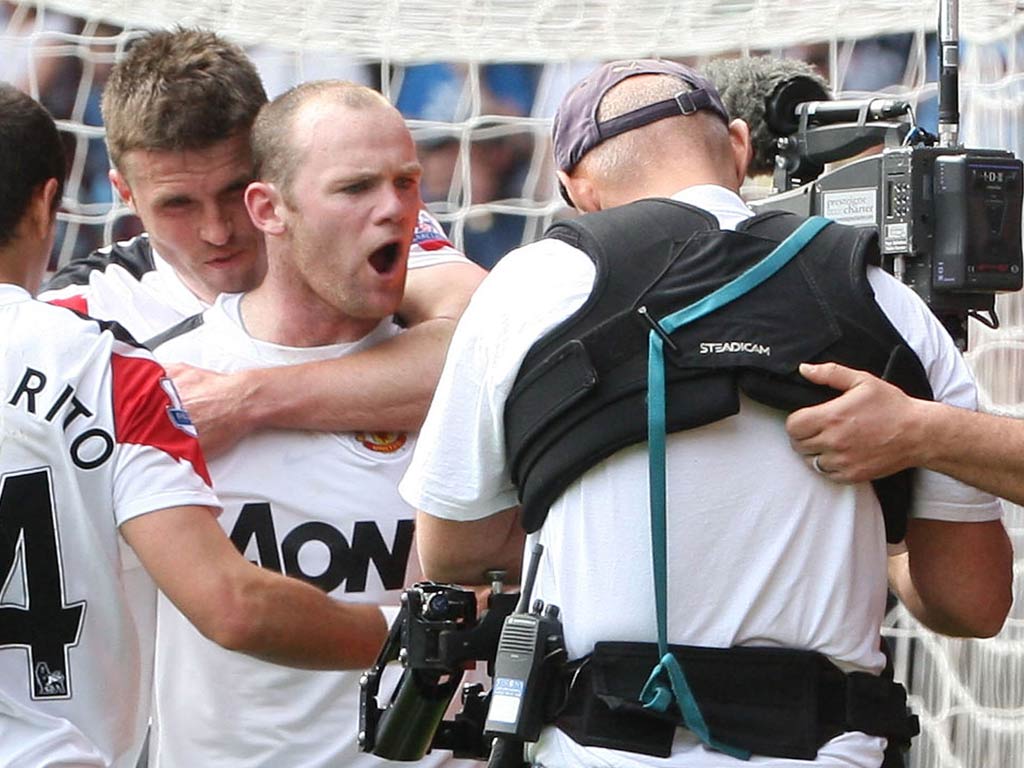Get set for new era of Premier greed as TV bubble swells

When the envelopes containing sealed bids for the new Premier League television contracts were opened, there was apparently "a gasp" at the size of them.
The TV bubble, far from having burst as many doomsayers had predicted in these hard economic times, has expanded to proportions unimagined by even Richard Scudamore, the chief executive who continues in the manner of West Ham United's theme song to blow bigger financial bubbles than ever, without any sign of their fading and dying.
It was one of the most dramatic moments in an often fraught relationship between the national sport and the box in the corner (increasingly the widescreen on the mantlepiece) since Alan Sugar, manufacturer of Amstrad dishes, dashed to a phone booth after seeing ITV's bid for the first Premier League contract 20 years ago and told BSkyB's Sam Chisholm, "you have to blow them out of the water". Not only did Sky take his advice that day, but they are still doing so, so vital is football to their business, and new contenders such as BT Vision appear to have followed suit. That is the only conclusion from a cumulative increase from £1.7billion agreed three years ago to the staggering new figure of £3.018 billion for three seasons from 2013-14.
The author and broadcast consultant Alex Fynn was in at the beginning, as an executive of Saatchi and Saatchi, advising the Football Association about the formation of their Premier League and how to handle television. His complaint these days is that the FA, having managed to lose control of what was their own competition, have forfeited millions of pounds that could have been used for the good of the game as a whole instead of benefiting only the elite.
"The Premier League has done a marvellous job for their members but English football is more important than 20 clubs," he said the day after last week's announcement. "The 20 have all the hype and most of the money and that's not beneficial for the English game. The FA should have said from the start that they would take some of it, for education, coaching, kids, women's football and so on. We could have had the National Football Centre at Burton built 20 years ago." What of the £167m, or 14 per cent of income, that the League claims to pass on every year to those lower down the food chain? "It's fine having, for instance, parachute payments for colleagues who've fallen on hard times. But they're distributing largesse because they can afford to. It's like Wayne Rooney giving a bellboy £200 as a tip."
As for where all this new money will go, Fynn essentially believes in what Sugar called "the prune-juice effect", going straight through the system and out again – in this case into the players' pockets: "The horrific side-product of it is the possibility of a £300,000 a week footballer. Because there is no life outside the Premier League, the players call the shots."
The Queens Park Rangers chief executive Phil Beard insists that is "not necessarily" the case, but admits after his club survived on the dramatic final day: "It does make it even more important not to be one of the three teams that don't stay in the Premier League. It went to the wire at the top and the bottom last season and that's one of the reasons why the TV companies pay the money."
That money is estimated to be worth up to £20m more for each club from 2013, therefore giving the club that comes bottom of the table more than the £60.6m that Manchester City have just received for finishing top. Where will it end? With more of the same, analysts believe. Overseas rights, even more lucrative than the domestic contract last time, have yet to be auctioned again and there is not shortage of interested parties. Al Jazeera, who have taken significant television rights in France and already have Gary Lineker presenting Champions' League football, are expected to be among them; then there is new media, which could further transform the landscape.
"I am really hoping that it will get invested in other things besides just playing talent," Scudamore said of the new bonanza. Do not hold your breath.
2011/12 Premier League income from broadcasting:
Arsenal - £56,223,505
Aston Villa - £42,104,709
Blackburn Rovers - £40,317,633
Bolton Wanderers - £40,594,585
Chelsea - £54,436,429
Everton - £48,900,267
Fulham - £47,390,143
Liverpool - £54,360,635
Manchester City - £60,602,289
Manchester United - £60,325,337
Newcastle United - £54,235,271
Norwich City - £45,603,067
QPR - £43,262,087
Stoke City - £43,614,833
Sunderland - £44,369,895
Swansea City - £45,880,019
Tottenham Hotspur - £57,380,883
West Brom - £46,635,081
Wigan Athletic - £42,859,771
Wolves - £39,084,461
Championship teams receiving parachute payments
Birmingham City - £15,475,005
Blackpool - £15,475,005
Burnley - £12,219,732
Hull City - £12,219,732
Middlesbrough - £4,081,548
Portsmouth - £12,219,732
West Ham United - £15,475,005
Join our commenting forum
Join thought-provoking conversations, follow other Independent readers and see their replies
Comments
Bookmark popover
Removed from bookmarks